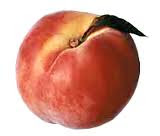“You let this damned thing near! Are you asleep?
What are we going to do, now that he’s come?
He has a life he has a right to keep.
He’s human, though he’s barely more than scum.”
The conversation, still with but one side,
drew closer to the subject of the slur,
who didn’t know to whom the words applied
nor why his presence had caused such a stir.
“You might as well come up.” She stood astride
the prostrate boy, whose face was in the dirt.
“When I find Engadin, then we’ll decide.
For now, you stay with me, and no one’s hurt.
“So what’s this ‘learning who I am’ claptrap?
You shouldn’t have to search for who you are.
Each locus is a point upon the map.
You can’t stray from your nature very far.”
Engadin: I have given up trying to make sense of this name. I can find some significance in every other name in this canto, usually by reversing the spelling.
Claptrap: This is a poke at the tendency of Objectivists, on the founder of which movement this character is apparently based, to scoff at most varieties of sentimentality. I think they don’t really object to people learning about their own nature, but in the context, “learning who I am” sounds like touchy-feely self-discovery, and they do seem to have a problem with that.
©2010 Louis A. Merrimac
Subscribe to:
Post Comments (Atom)

No comments:
Post a Comment